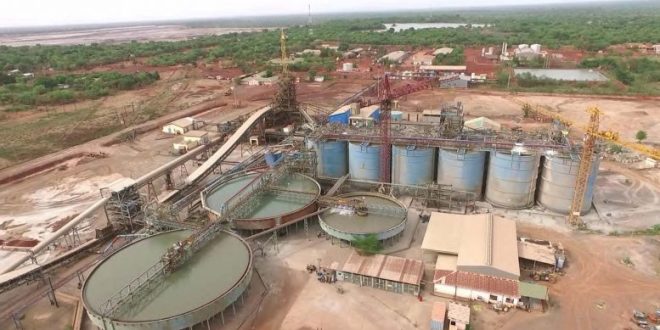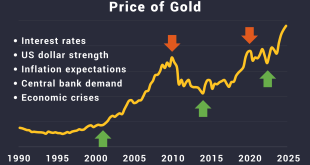Mali has officially taken control of several abandoned gold mines across the country, marking a pretty significant step in its ongoing efforts to, you know, assert greater control over its own natural resources. This move isn’t exactly out of the blue; it follows a string of recent decisions all aimed at boosting the state’s role in the mining sector and making sure the wealth from Mali’s minerals actually benefits its people. It feels like the government is sending a clear message: they’re serious about reshaping how they deal with international mining companies and actively managing their resources for the country’s development. Wonder if this will really change things for the average Malian, though?
Background: Mali’s Resource Dependence and Foreign Influence
Mali’s economy, let’s face it, has been heavily reliant on its natural resources, especially gold. For years, mining has been a major contributor to the country’s GDP. You see the stats, and it’s hard to ignore. But this dependence also means Mali is vulnerable to fluctuations in global commodity prices and, perhaps more importantly, the influence of foreign companies. It’s a delicate balance, trying to attract investment while ensuring the nation gets a fair deal.
Historical Context of Mining in Mali
Digging into the past (pun intended!), mining in Mali has a long and storied history. Traditional, artisanal mining has been around for centuries, but the arrival of large-scale industrial operations brought both opportunities and challenges. These industrial projects promised economic growth, but they also raised questions about who really benefited and what the environmental costs were. Anyone else remember that documentary about the gold rush in the Amazon? Similar vibes, maybe?
Concerns Over Revenue Distribution and Resource Exploitation
Here’s the rub: A big chunk of the concern revolves around how the revenue from mining is distributed. Is it trickling down to the communities affected by mining? Are enough jobs being created for locals? And then there’s the nagging issue of resource exploitation. Are the companies playing fair? Are they leaving a mess behind? These are the kinds of questions that keep people up at night, and rightly so. I mean, wouldn’t you want to know if your country’s resources were being used responsibly?
The Takeover: Abandoned Mines and Government Rationale
So, about this takeover. Mali has now officially taken control of these abandoned gold mines. Sounds simple enough, but what’s the real story?
Details of the Mines Affected by the Takeover
Okay, so we’re talking about specific mines that were, well, abandoned. Apparently, these mines are scattered across a few regions known for their gold deposits. I don’t have the exact coordinates here, but you get the picture. These weren’t small operations; they had the potential to yield significant amounts of gold. But for whatever reason, the previous operators packed up and left. Leaving what behind? That’s the million-dollar question.
Government Justification: Environmental Concerns and Unfulfilled Obligations
According to the Malian government, they’re stepping in because of two main reasons: environmental concerns and unfulfilled obligations. Apparently, the abandoned mines pose environmental risks – think pollution, soil degradation, the whole nine yards. And the previous operators? They supposedly didn’t fulfill their contractual obligations, which could include anything from failing to invest in local communities to not properly closing down the mines. So, the government’s argument is that they’re acting in the best interests of the environment and the Malian people. Makes sense, in theory. Let’s see how it plays out.
Implications for Mining Companies and Foreign Investment
This takeover has some pretty big implications, especially for mining companies operating in Mali and those thinking about investing there. It’s a signal, loud and clear.
Potential Impact on Existing Mining Contracts
If you’re a mining company with existing contracts in Mali, you’re probably watching this situation very closely. This move could potentially lead to renegotiations of existing agreements, or at least a much closer scrutiny of whether companies are meeting their obligations. Suddenly, those fine-print details in the contract are looking a lot more important, right? I bet there are some nervous board meetings happening right now.
Investor Confidence and Future Investment in Mali’s Mining Sector
Investor confidence is a fragile thing. Actions like this takeover can definitely spook investors. Will they see Mali as a stable and predictable place to put their money? Or will they worry about the government changing the rules of the game? It’s a risk-reward calculation. Mali needs foreign investment to develop its mining sector, but it also wants to control its resources. Finding that balance is key. Will they succeed? Only time will tell.
The Broader Push for Resource Sovereignty
This takeover isn’t happening in a vacuum. It’s part of a bigger push by the Malian government to gain more control over its natural resources. What other steps are they taking?
Recent Policy Changes and Legislative Reforms
Mali has been busy making changes to its policies and laws related to mining. These reforms aim to increase the government’s share of mining revenue, give it more say in how mining operations are conducted, and ensure that environmental and social standards are met. It’s a whole package of measures designed to put Mali in the driver’s seat. It’s ambitious, no doubt.
Examples of Increased State Participation in Mining Ventures
You’re seeing the Malian government taking a more active role in mining ventures. This could involve the state acquiring stakes in existing mines, or even partnering with companies to develop new projects. The idea is to ensure that Mali benefits directly from its resources, rather than just collecting taxes and royalties. Sort of like saying, “We want a bigger piece of the pie.”
Challenges and Opportunities Ahead
Okay, so Mali has taken control of these mines. What’s next? It’s not all smooth sailing, that’s for sure.
Addressing Technical and Logistical Hurdles
Let’s be real, running a gold mine isn’t a walk in the park. Mali faces some significant technical and logistical challenges. Do they have the expertise to operate these mines efficiently and safely? Do they have the infrastructure in place to transport the gold to market? These are the kinds of questions that need to be answered. It’s one thing to take control; it’s another thing to make it work.
Attracting Responsible and Sustainable Mining Practices
Mali has a golden opportunity (another pun, sorry!) to set a new standard for responsible and sustainable mining practices. They can attract companies that prioritize environmental protection, respect human rights, and invest in local communities. It’s about creating a mining sector that benefits everyone, not just a few. It’s a tall order, but it’s worth striving for.
So, Mali’s recent takeover of abandoned gold mines marks a bold move towards greater resource sovereignty. The government’s rationale centers on environmental concerns and unfulfilled obligations, signaling a firm commitment to redefining its relationship with international mining companies. This action, part of a broader push for resource control through policy changes and increased state participation, presents both challenges and opportunities. Mali must now address technical and logistical hurdles while striving to attract responsible mining practices to ensure long-term benefits for its economy and society. What’s your take on this? Will Mali really manage to turn the page and start a new chapter in its mining history? I’m curious to see how this unfolds. It could be a game-changer, or just another chapter in the same old story. Only time will tell. Let me know what you think!
 seeme
seeme



